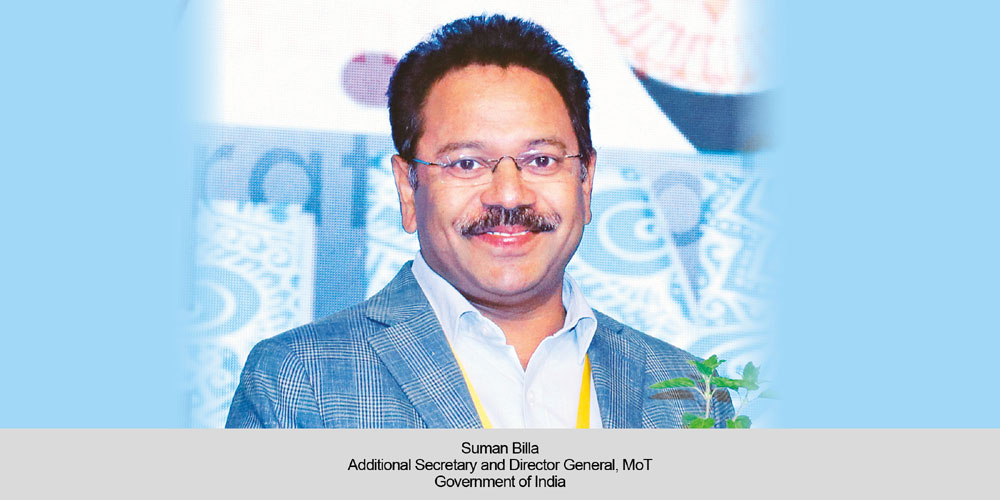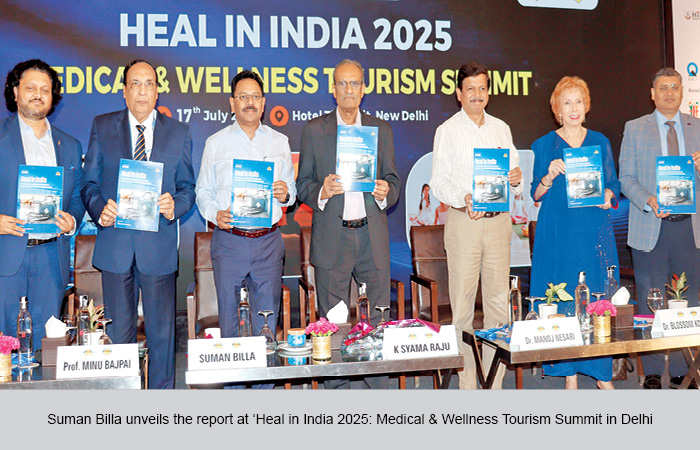With only six GSTC-certified hotels in India compared to over 2,000 globally, the Global Sustainable Tourism Council (GSTC) is urging Indian hoteliers to embrace certification not just as an ethical move, but a strategic business advantage. Hotels need to start their sustainability journey voluntarily, says CB Ramkumar, Vice Chair, Global Sustainable Tourism Council.
Surbhi Sharma
With an aim to encourage more hotels—especially in India—to adopt and implement sustainable practices, the Global Sustainable Tourism Council (GSTC) recently launched its Certified Hotels Directory, a global listing of hotels that have been certified by GSTC-accredited bodies. The council hopes that Indian hoteliers will see the commercial advantage of certification, especially as certified hotels gain algorithmic preference on leading Online Travel Agencies (OTAs) like Booking.com and Agoda, thereby increasing visibility and bookings.
CB Ramkumar, Vice Chair, GSTC, says, “Despite India’s growing hospitality industry, only six Indian hotels are currently GSTC certified, compared to over 2,000 globally, most of which are in Turkey and Singapore.”
The disparity, he explains, lies in the lack of strong policy support in India. Countries like
Turkey and Singapore have government mandates encouraging certification, whereas in India, tourism is a state subject. While the Union Ministry of Tourism (MOT) can issue guidelines, implementation depends on individual states.
States to join hands
India’s adoption of sustainable tourism frameworks is still evolving. Encouragingly, some states are stepping up. The MOT has been cautious, partly because tourism is a state subject. However, progress is visible in states like Gujarat and Uttar Pradesh, which have included certification subsidies in their tourism policies, offering to cover up to 50 per cent of certification costs. States like Meghalaya and Madhya Pradesh are also showing interest, and GSTC is actively conducting training and awareness programmes with local tourism boards and officials. The council has offered to work with these states to operationalise their policies, provide training and explain the commercial and ecological benefits of certification.
Ramkumar stresses that hotels need to start their sustainability journey voluntarily before future mandates from India or feeder markets like Europe make certification a requirement. He also urges hoteliers to look at sustainability as a risk mitigation strategy and a business imperative, not a CSR exercise.
Four pillars of sustainability
One major barrier for the certification is misconception—many hotels equate sustainability with environmentalism alone, or assume it requires heavy capital expenditure. GSTC defines sustainability across four pillars: Sustainability management, socio-economic sustainability, cultural sustainability and environmental sustainability. The first step is often as simple as measuring electricity, water and waste usage—not installing solar panels.
Another barrier is perception; some hoteliers see sustainability as “nice-to-have” rather than something that is core to business. Ramkumar argues this mindset is flawed. Sustainability reduces operational costs, improves staff retention, enhances customer loyalty and boosts brand reputation.
Importantly, GSTC does not differentiate between business hotels, homestays, or FIT-oriented properties. “All hotels should be sustainable, irrespective of size, location, or segment,” he asserts. Given that hotel guests typically consume 7–9 times more water than local residents, the impact of the sector is immense—and so is its responsibility.
Certification & credibility: Fighting greenwashing
In a marketplace flooded with unverified “green” claims, GSTC certification offers third-party validation, setting verified properties apart from competitors. Ramkumar stresses that certification is more than a label—it is a stamp of credibility backed by independent audits.
As awareness on greenwashing grows, savvy travellers are increasingly demanding authentic, sustainable experiences and questioning vague sustainability claims.
Carbon footprint: A hidden crisis in Indian tourism
Ramkumar believes a major reason for delayed action is the underrated environmental impact of tourism. Unlike industries like coal and steel, tourism’s carbon emissions have largely “flown under the radar”. However, with each hotel potentially emitting hundreds of tonnes of carbon annually, governments need to acknowledge tourism as a major carbon contributor.
What next?
India’s hospitality sector must act now, voluntarily embracing sustainability to stay ahead of international standards, consumer expectations and upcoming regulations. As more states and operators get on the board, GSTC hopes to witness a significant increase in certified Indian hotels.
 TravTalk India Online Magazine
TravTalk India Online Magazine





